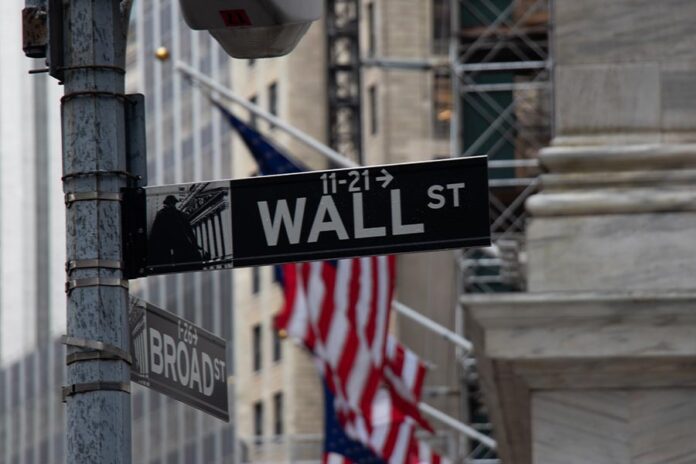Jianzhi Education Technology Group is the first Chinese variable interest entity (VIE) to debut on the Nasdaq since DiDi’s 2021 listing on the same market sparked a crackdown by Chinese authorities.
The online vocational education provider’s achievement is significant as it signals a positive shift among authorities in both countries in this sector since the US listing crackdown and China’s clampdown on overseas listings and commercialisation of the education sector.
Jianzhi is also the first Chinese firm to file a prospectus with the US Securities and Exchange Commission (SEC) since July last year, the same month that marked the onset of winter for Chinese firms going public in the US.
After nearly a year of multiple revisions since filing the initial prospectus, the online vocational education provider was able to complete its Nasdaq listing on August 26, 2022.
Last year, Chinese authorities banned the popular ride-hailing app DiDi in the country, shortly after it rushed to list on the NYSE, ignoring warnings from China’s watchdog.
Chinese authorities launched an investigation and implemented stringent regulations on listing overseas. In July 2022, Chinese regulators slapped a hefty fine of RMB8.026 billion (USD1.18 billion)on DiDi, saying it illegally collected customers’ data and breached cybersecurity laws.
US oversight and scrutiny were also becoming more complicated. Although Jianzhi Education’s initial prospectus was filed around the middle of last year, it lodged 12 updates before shares finally debuted on the Nasdaq on 26 August this year at USD5 apiece, slashing in half the original fundraising target from USD50 million to USD25 million.
Hou Qinghai, the lead partner of Commerce & Finance Law Offices who advised the issuer on PRC law, believed that the impact of policies – such as the Holding Foreign Companies Accountable Act – has tightened the requirements when the SEC reviews Chinese stock listing applications.
“[The SEC] has filed more than a dozen rounds of feedback on Jianzhi Education’s listing application, including the disclosure of risks related to the Chinese company, the disclosure of risks and relevant information about the VIE structure, the applicability and impact of new laws and regulations in China, and so on.”
The VIE structure was one of the obstacles preventing Jianzhi Education gaining the SEC’s nod for its listing application. This transaction also came amid an education market crisis in China since July last year, as the “double reduction” policy forbade private tutoring companies focusing on compulsory education from selling shares via a backdoor listing or VIE structure.
It is through the VIE structure that Jianzhi Education works in China, with the operating entity Beijing Sentu Education Technology. The company was able to list in the US without divesting itself of its VIE, most probably because its main business focuses on vocational education, building digital libraries and smart campus platforms, and is not involved in compulsory education.
However, the final prospectus still pointed out that the VIE structure may be an investment risk “if the PRC government finds these contractual arrangements non-compliant with the restrictions on direct foreign investment in the relevant industries”.
Such investment risks are increasingly being taken seriously by the SEC, and the protracted back-and-forth review process amid diplomatic tensions has caused a plummet in Chinese firms listing in the US.
Nasdaq data show that some 30 Chinese companies listed on the bourse in the first half of 2021, with two in the second half of that year before only one in the first quarter of 2022.
Hou also observed this change, but believed that as long as the US and China sign an audit and regulatory co-operation agreement, clarify standards and launch policies related to data security and other issues from China’s side, it will help stabilise public expectations of the regulatory environment and eliminate the uncertainty.
The China Securities Regulatory Commission, the Ministry of Finance of the PRC, and the US Public Company Accounting Oversight Board (PCAOB) reached an audit and regulatory co-operation agreement on 26 August, giving the PCAOB the green light to investigate and inspect public accounting firms in China and Hong Kong.
SEC chairman Gary Gensler later issued a statement, saying that the investigators must be on-site by mid-September if they are to complete their work successfully by the end of 2022. Bloomberg quoted sources as saying that both Chinese and American figures had arrived in Hong Kong in late September to carry out the work.
Hou said: “The US stock market still has its own strong suits. As the Chinese and US governments’ regulation of Chinese stocks tends to become clearer, the US capital markets will gradually regain their attractiveness, with its simpler listing requirements, listing processes and regulatory procedures.”
In the transaction, Kirkland & Ellis advised Jianzhi Education on US and New York state law, led by transactional partner David Zhang and capital markets partner Steve Lin. Commerce & Finance advised on PRC law, while Conyers Dill & Pearman’s leading partner Flora Wong advised on Cayman Islands law.
The underwriter, Univest Securities, turned to Sidley Austinas US and New York state counsel, while DeHeng Law Offices, led by Sang Shidong, was PRC counsel.
Partner Ding Meng led the Sidley team. Partner Nicholas Brown helped with passive foreign investment company analysis and counsel Benjamin Nager assisted with Financial Industry Regulatory Authority filings.






















